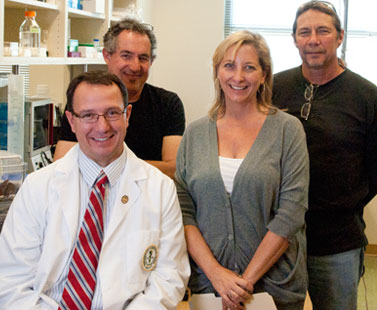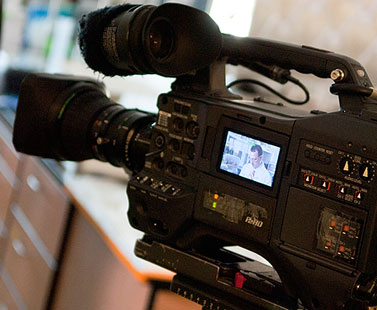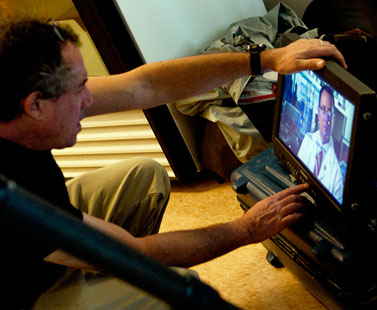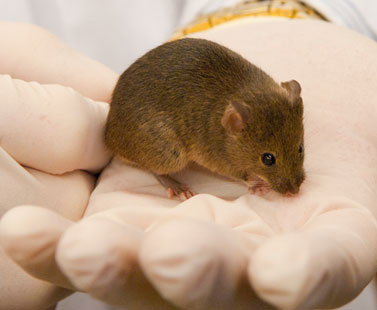USF neuroscientist’s research featured on Yahoo! site
USF Health and the research of neuroscientist Edwin Weeber, PhD, got a national boost this week with the posting of an inspirational video on the popular web portal Yahoo! News. The clip above, created by USF Health Communications, offers a behind-the-scenes peek at the Yahoo.com crew’s production of the video Angleman Syndrome: Close to a Cure?
Yahoo! teamed up with the Foundation for Angelman Syndrome Therapeutics (FAST), which helps support Dr. Weeber’s research, to promote research for the rare neuro-genetic disorder. The resulting video, including an interview with Dr. Weeber, was posted this week on the Yahoo! News site. It also received widespread pickup on celebrity-entertainment websites earlier this month, because actor Colin Farrell opened up about his son’s diagnosis with Angleman syndrome during an interview with TV host Ellen DeGeneres.
The video tells the story of families living with Angelman syndrome (AS), which affects approximately one in 15,000 children. The compelling narrative makes an appeal for support of research to find treatments for this devastating disease, which is characterized by mental retardation, movement and balance problems, and seizures.

L to R: USF Health neuroscientist Edwin Weeber with Yahoo.com
production crew members David Brown, cameraman; Tami Weitzman,
producer; and Jerry Colson, sound.
It features an interview with Dr. Weeber, associate professor of molecular pharmacology and physiology, filmed earlier this year in his laboratory at the USF Health Byrd Alzheimer’s Institute. Dr. Weeber heads one of the handful of laboratories worldwide probing the molecular mechanisms underlying AS. In 2007, Dr. Weeber and collaborators essentially cured mice with a mutation of the single gene that causes AS. They reversed all the animals’ neurological deficits by preventing the inhibition of CaMKII, an enzyme critically involved in the proper functioning of synapses and processes underlying learning and memory.
“We were able to genetically cure it in the mouse,” Dr. Weeber said in the video, “so parents with children who have Angleman syndrome should be very hopeful there’s a treatment out there — we just have to find it.”
Building upon earlier work with the AS mouse model, Dr. Weeber continues to explore several strategies that may yield treatments for the debilitating disorder. Funded by FAST, Dr. Weeber’s group is also testing the effectiveness of existing FDA-approved drugs in treating the cognitive, motor coordination and physiologic impairment established in the AS mouse model.

Sound check…

Lights…

Camera…


Action!

Video by Amy Mariani, photos by Eric Younghans and story by Anne DeLotto Baier, USF Health Communications

